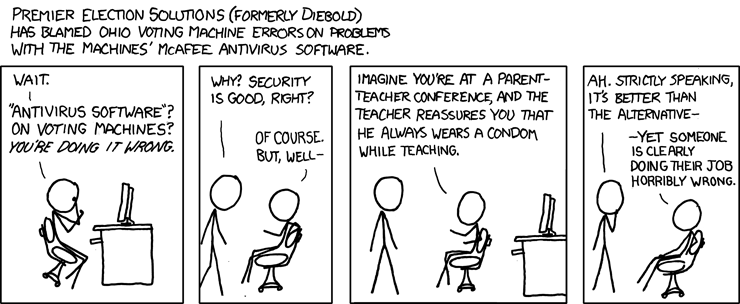Mondays are meeting days for SchoolTool, and this week's news and updates show things starting to come together as we approach the new school year and a new beta release.
In Vilnius, Ignas Mikalajūnas, with some help from Marius Gedminas, is through the hardest part of implementing a proper structure for school years and terms and will be checking that code in soon. This is the last large, potentially troublesome bunch of functionality that we need to add before the beta in October. Really, it is one of the first things that should have been done, but that mistake was made a long, long time ago. It feels like jacking up a house to add a new first floor. Seeing the end of this part of the project is a big relief.
In Arlington, Virginia, SchoolTool developer Alan Elkner, Programmers of Vilnius (POV) developer Justas Sadzevičius, Arlington student developers including Filip Sufitchi and Chris Carey, and assorted local teachers, administrators and techs got together for a CanDo development sprint, in anticipation of deploying this SchoolTool-based competency tracking application for 120 Virginia teachers later this month. By all accounts things went well, and the meeting illustrates the fairly complicated way our two projects are intertwined. In terms of money, the Commonwealth of Virginia paid for the developers this time around, Alan is an independent contractor who currently works full time on SchoolTool and CanDo, Justas is a co-worker of our lead developer, Ignas. This was Justas's first significant work on either project, but through POV were able to hook CanDo up with an skilled developer to fill in when they needed one on short notice, and we get another developer with SchoolTool experience, and Justas seems to have enjoyed it and impressed everyone in Virginia, so that ended up being a big win all around. Filip and Chris were among the student developers Jeff Elkner trained last year, in part with funding from Mark Shuttleworth and SchoolTool. They're doing high quality work now, making a good buck, and both have at least another year of school. Working closely with our professional developers over the past year has been a big part of their development. It is just about time to really document how we've done all this.
Figuring out how to make the relationship with POV work has been key. Having one full time programmer acting as lead developer, while still working within a small shop (rather than on his own as an individual) seems to be the right combination of flexibility (adding a developer when the schedule fits, having senior colleagues to go to for advice) and stability (commitment to POV as well as SchoolTool, possibility of organized succession if Ignas leaves the project, having local management to write the invoices, pay the rent and other non-programming tasks).
Meanwhile, this week Alan is back in Philadelphia, working to hit his deadline to get some new features running at SLA. This is another kind of relationship we're experimenting with, where SchoolTool is essentially paying a developer to work for a local school. We meet, plan out some goals that make sense for the individual school and the project as a whole, then put Alan to work on them, with a good chunk of his pay dependent on meeting the schedule. The whole dynamic is a little weird, and you lose unity of command, but it is useful in exceptional cases, like when you happen to know an extremely tech-savvy principal and staff and an available developer living in the same city. It has helped us bootstrap things this year, but I don't know that it will go down as a best practice. We'll see how the rest of the year goes.
The main topic of conversation at Monday's IRC meeting was how to update our translation processes (on Launchpad, natch) to get ready for regular production releases. That is, we need to switch from just translating "SchoolTool" to translating specific versions of SchoolTool, how we transfer the old translations into new versions, etc. If SchoolTool is successful, we'll be able to point to this kind of infrastructure work as one reason why; if it isn't successful, doing this kind of infrastructure work before shipping a working application will be one reason why. But really, we can't avoid it. Specifically, Jeff Elkner found us an enthusiastic Zope 3 developer in El Salvador who was at yesterday's IRC meeting and is willing and able to run SchoolTool down there, so we really do need to get the translation story straightened out ASAP.
And that's the way SchoolTool is, as of August 11, 2008.



